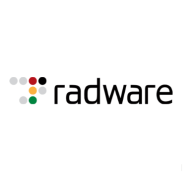


Azure Web Application Firewall and Radware Cloud WAF Service compete in the web application security sector. Data comparisons suggest Radware Cloud WAF Service has an edge with its advanced features.
Features: Azure Web Application Firewall integrates smoothly with Microsoft's ecosystem offering ease of use, DDoS protection, and threat intelligence. Radware Cloud WAF Service provides superior machine learning capabilities, real-time threat detection, and multi-cloud flexibility, showcasing advanced cybersecurity features.
Room for Improvement: Azure Web Application Firewall could enhance advanced features like machine learning and expand flexibility to other cloud platforms. Radware Cloud WAF Service may benefit from simplifying its deployment processes and reducing the complexity in multi-cloud integrations. Improved integration guides could help customers better utilize its capabilities.
Ease of Deployment and Customer Service: Azure Web Application Firewall is noted for its easy deployment within the Azure services and benefits from Microsoft's wide-ranging support structures. Radware Cloud WAF, while more complex, offers specialized deployment options across various cloud providers with responsive and effective customer service, known for handling complex deployment issues.
Pricing and ROI: Azure Web Application Firewall is cost-effective for Azure ecosystem users, yielding higher ROI. Radware Cloud WAF Service entails a higher initial cost but provides superior security measures, justifying potential long-term ROI through comprehensive protection.
WordPress security can be tricky, and that's where Cloudflare can be absolutely helpful for small businesses.
We have had ROI with the tool's use since it never gave us downtime and made us lose millions.
For the small project I was working on, using the basic tier provided a huge improvement at zero cost.
Recently, they have been under serious attack with major exploits, such as Log4j, affecting Fortinet and Palo Alto, and even Cisco and VMware.
AI-based recommendations save on time and money.
I wouldn't be able to give a number, but Radware Cloud WAF does save time for our staff due to the automation and excellent detection, which is invaluable.
Radware Cloud WAF has helped reduce false positives and efforts, which in turn, improved the total cost of ownership by freeing up time to focus on other projects.
The ROI for Radware Cloud WAF Service is prominent as it is twenty percent more cost-effective compared to Imperva.
This would help us address issues promptly, especially during unforeseen events like DDoS attacks.
We'd like a dedicated account manager.
You can get a support engineer with the best qualifications.
They are good at troubleshooting and configuring things.
I am very satisfied with the response from Microsoft dedicated architects if it happens that I have to call for their support.
The support provided by Radware's Emergency Response Team is excellent.
We have ERT premium support with a five-minute SLA.
They are usually very fast in response.
I would rate the solution's scalability a ten out of ten since I didn't encounter any issues with it.
I rate its scalability a ten out of ten because I had no issues with it.
I rate the scalability a ten out of ten.
Some Azure applications, like the web application firewall, require a certain level of SKU for hosting setup.
Since it's a Cloud WAF, it is always scalable.
I would rate it nine out of ten in terms of handling the capacity and volume.
Anytime we've had any issues, Radware has provided us a solution, indicating its high scalability.
For DDoS protection, I would not recommend Cloudflare.
I rate the solution’s stability an eight out of ten.
The service is very stable with no impacts during high-traffic periods.
Very rarely do I see any latency issues.
I have never encountered downtime, maintenance-related issues, or latency.
The stability of Radware Cloud WAF Service is excellent, and I would rate it as a ten.
There have been no issues with downtime, bugs, or glitches.
There's a need for improvement in areas like AI-based DDoS attacks and Layer 7 WAF features.
Despite these challenges, overall, Cloudflare remains the preferred solution compared to Azure, AWS CloudFront, and Google Cloud Armor.
the ability to integrate with the on-site active directory instead of just AD through Azure AD
Upgrading the platform regularly is necessary for security, however, frequent updates every six months or year from Azure can be a maintenance overhead.
It would be beneficial if we could perform POST requests and integrate our applications more effectively.
Improving dashboard capabilities to provide this information clearly for management is crucial.
The reporting features could be more intuitive with more real-time monitoring, which would help make faster decisions.
That's where Cloudflare shines for smaller businesses – it's ten times cheaper than Akamai.
I find it to be cheap.
It's cost-effective, but I think they should have a custom pricing model for enterprise customers based on the features you use.
It is even a lower cost compared to AWS and GCP.
Sometimes, when opting for a higher SKU, it's not the WAF itself that's costly but the additional requirements.
Pricing could be more competitive, especially for smaller customers.
I find Radware Cloud WAF to be a quite expensive product compared to others.
The pricing is not cheap; it is expensive, but it is effective.
Our scenario consisted of two web servers in different allocations to control access demands, and the load balancer did the job as expected, bringing security and stability to access points.
For me, the valuable feature is DDoS protection.
The most valuable features of the solution are performance and security.
With Microsoft, everything is within a single suite, making it easier to configure and plan.
It is almost impossible to access these assets from outside, requiring a very skilled attacker to obtain asset tokens of a customer using Azure.
The most important aspect of Radware Cloud WAF is that it is over the cloud, offering a comprehensive solution that includes WAF, API protection, bots, and Layer 7 DDoS.
Radware Cloud has significantly reduced attacks on our applications.
Radware Cloud WAF Service ensures our systems are stable, running smoothly, and blocking all attacks effectively.



Cloudflare is a highly-regarded Content Delivery Network (CDN) and a Distributed Denial-of-Service (DDoS) protection solution. The robust global connectivity cloud platform that is Cloudflare ensures users are able to connect to the Internet quickly, securely, and reliably. Cloudflare is one of the world's largest networks in the marketplace today. Using Cloudflare, businesses, educational entities, NGOs, vloggers, bloggers, and anyone else with an internet presence can experience more secure, faster websites and applications.
Currently, there are millions of Internet locations on Cloudflare, and the Cloudflare network
continues to grow every day by the thousands. The solution is able to fulfill the requests for
millions of websites seamlessly and serves on average 45 million HTTP requests per second.
Cloudflare has safe, secure data centers in close to 300 cities worldwide to ensure every
client request is filled as quickly as possible. It is Cloudflare’s edge network that makes this
possible by keeping content and other services as close to each client as possible, so the
information requests are always only seconds away.
Many organizations that work in democracy, civil society, human rights, or the arts are able to
access Cloudflare's highest levels of protection for free via Project Galileo. Additionally, official
election websites can be secured from hacking and fraud through Cloudflare’s Project
Athenian, also at no additional cost.
Cloudflare can also help organizations of all sizes develop a robust zero-trust strategy to
ensure the highest levels of productivity and profitability. Employees, stakeholders, and end users have a greater level of satisfaction and overall improved user experience, which can, in
turn, result in higher revenues and overall ROI. Zero-trust and BYOD (bring your own device)
access ensure end users and employees always have the best resources and technology
available to them at all times.
Cloudflare benefits
Cloudflare has many benefits. Some of its most valuable benefits include:
- Faster load times
- Robust DNS security
- Intuitive cloud Web Application Firewall (WAF)
- Free universal SSL
- Image enhancement
- Automatic browser caching
- Next-generation cloud load balancer
- Accelerated Mobile Pages (AMP)
- Rate limiting
- Minification
- Zero-trust capabilities
- Cost-effective
- Reduced carbon footprint
Reviews from real users
“Many websites require an SSL certificate because they sell stuff and want SSL. Cloudflare
comes with an SSL certificate built in. It's automatic. You sign yourself up for Cloudflare, and
an SSL certificate automatically protects your website. If you have a connection between your
website and your host, the server, Cloudflare, and the host, you don't necessarily need a
certificate.” Spencer M., Owner at Tech Exchange
“What I like best about Cloudflare is that my company can use it to trace and manage
applications and monitor traffic. The solution tells you if there's a spike in traffic. Cloudflare
also sends you a link to check your equipment and deployment and track it through peering,
so it's a valuable tool.” Daniel P., Network Engineer at Ufinet
“The most valuable feature of Cloudflare is the GUI. You are able to control the solution very
well through the interface. There is a lot of functionality that is embedded in the service.” PeerSpot user, Competence Center Manager at a tech services company
Azure Web Application Firewall (WAF) provides centralized protection of your web applications from common exploits and vulnerabilities. Web applications are increasingly targeted by malicious attacks that exploit commonly known vulnerabilities. SQL injection and cross-site scripting are among the most common attacks.
To learn more about our solution, ask questions, and share feedback, join our Microsoft Security, Compliance and Identity Community.
Radware’s Cloud WAF provides enterprise-grade, continuously adaptive web application security protection. Based on Radware’s ICSA Labs certified, market-leading web application firewall, it provides full coverage of OWASP Top-10 threats and zero-day attacks, while implementing both negative and positive web application security models to automatically adapt protections to evolving threats and protected assets.
Radware’s Cloud WAF offers full web security protection including OWASP Top-10 coverage, advanced attack protection and 0-day attack protection by implementing both negative and positive web application security models. It provides organizations “frictionless” application protection by automatically detecting and protecting new web applications as they are added to the network through automatic policy generation technology.
We monitor all Web Application Firewall (WAF) reviews to prevent fraudulent reviews and keep review quality high. We do not post reviews by company employees or direct competitors. We validate each review for authenticity via cross-reference with LinkedIn, and personal follow-up with the reviewer when necessary.